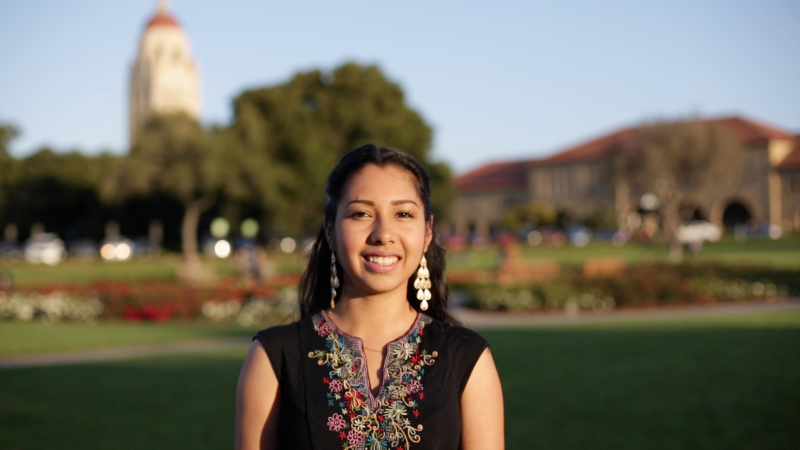The home screen of the app gives users the option to explore the database or create an account to keep track of scholarships on the platform. Salamanca said she wanted to let users search for scholarships without having to create an account in case some undocumented students didn’t feel comfortable giving their information.
To make the search easier, users of DREAMer’s Roadmap can filter the database. For example, they can select settings that reflect whether they have DACA or not to narrow down the scholarships for which they qualify. When they find a scholarship they like, users can share, comment or save the listing. If users know of a scholarship that is not listed, they can submit it, and DREAMer’s Roadmap will verify that it is legitimate before it goes live on the app.
Salamanca plans to keep the DREAMer’s Roadmap free. “We didn’t want to risk charging for the app and depriving people from obtaining a tool that can potentially help them get money and go to college,” she said.
She jump-started the app with $100,000 she won from the 2015 Voto Latino Innovators Challenge. For the national challenge, Voto Latino gives awards to five people with the best ideas in science, technology, engineering and math aimed at Latinos in the United States. Other innovations included an online course for Latino business owners and an app that connects students with Latino mentors in the health field.
Salamanca started working full time for DREAMer’s Roadmap after obtaining her associate’s degree from Cañada College in Redwood City and winning the competition. The $100,000 helped her with the bare minimum to start the project. From the award, she used $50,000 to develop the Android version of the app, and the other half was spent on her salary, marketing and building the website. She was able to develop the iOS version with a $25,000 donation from an anonymous donor.
“The toughest part has been finding additional funding,” Salamanca said. “A lot of foundations have trouble seeing the impact that we’re going to have in the community.”
Additional funding is needed to keep the app updated, to fix bugs and to adapt to the number of users. When asking for donations, Salamanca said it is hard to pitch DREAMer's Roadmap as a startup that is also a nonprofit organization because most apps are for-profit. “Foundations are like, ‘Well we can’t fund startups,’ ” she said. “Yeah, but we’re a nonprofit startup.”
To promote DREAMer’s Roadmap, Salamanca and her team have started developing partnerships with schools. Her current partners are the Sequoia High School Dreamer’s Club in Redwood City and UC Berkeley’s Undocumented Student Program.
Jane Slater, the adviser for the Sequoia High School Dream Club, said that the app will serve as an organizational tool for students. “It’s much more in tune with what teenagers are doing right now, and that’s doing everything on their phone, including writing essays.”
Alicia Carmen Aguirre, former mayor of Redwood City, is on the board of directors of DREAMer’s Roadmap. As a professor at Cañada College, Aguirre said she finds that undocumented students are often scared to speak up about their status and ask for help navigating college.
“If students get to this app and find opportunities to go to college, it will make a difference in their lives and it will open up opportunities,” she said.
Salamanca now has her green card and plans to attend a four-year university this year. As an advocate for undocumented students’ rights, she was one of Forbes 30 Under 30: Education in 2016, was named a Champions of Change recipient by President Obama’s administration in 2014 and participated in the DREAMer Hackathon hosted by Mark Zuckerberg in 2013.
Recently, she received an email from a woman asking her if she could go to a four-year university, even though she was not able to afford it.
“I love receiving those emails because it is the reason why I’m doing this,” Salamanca said.
